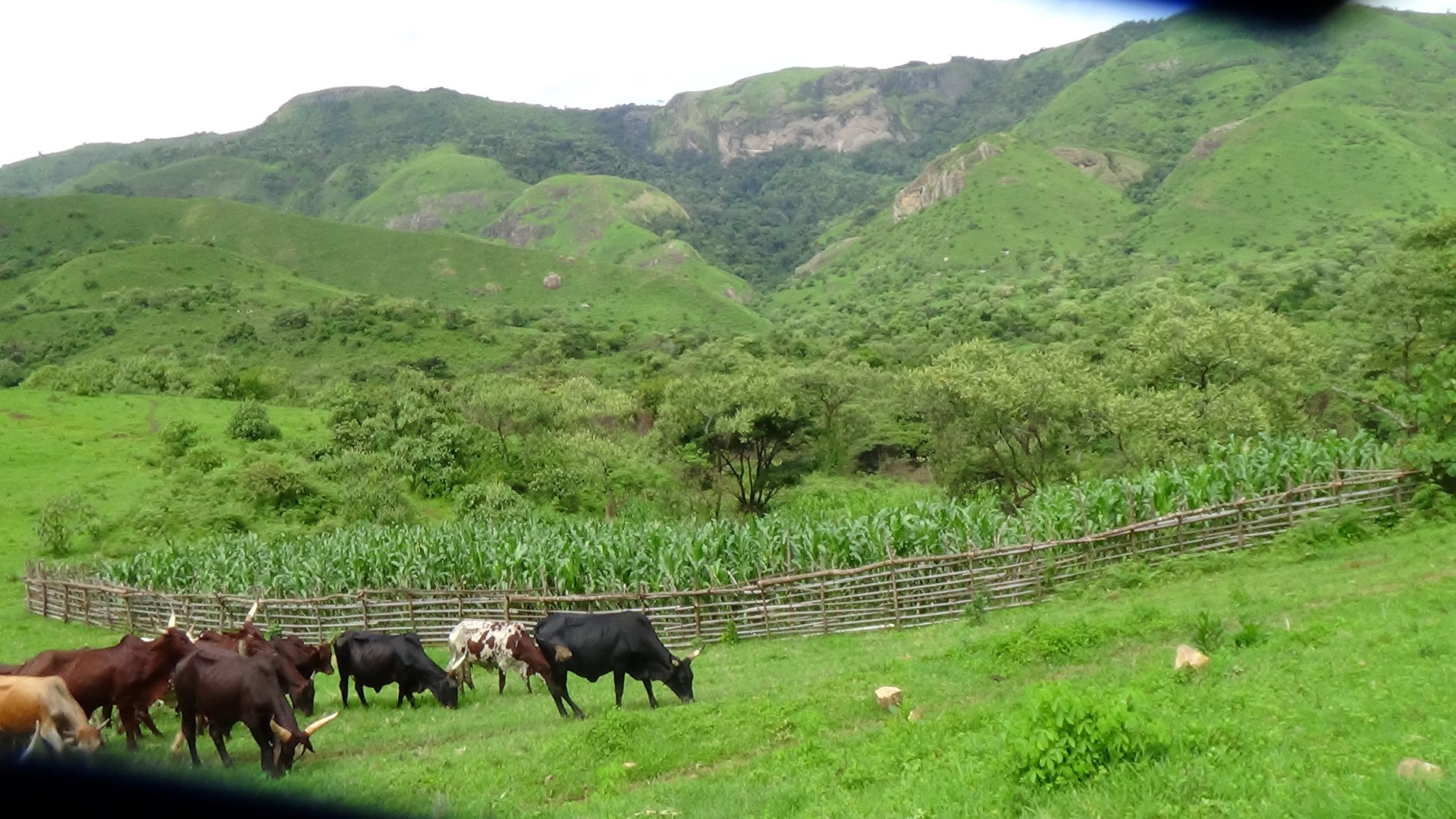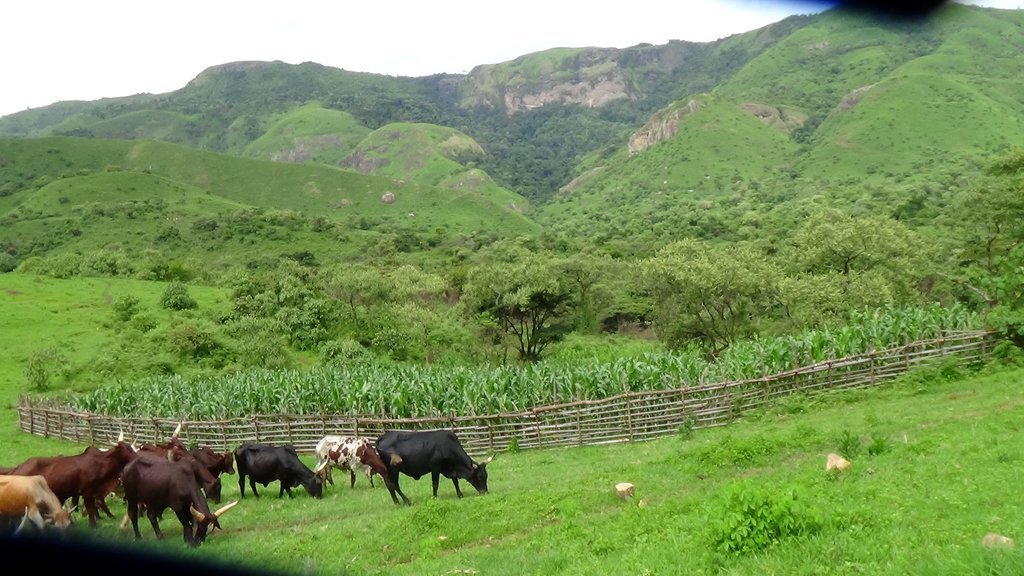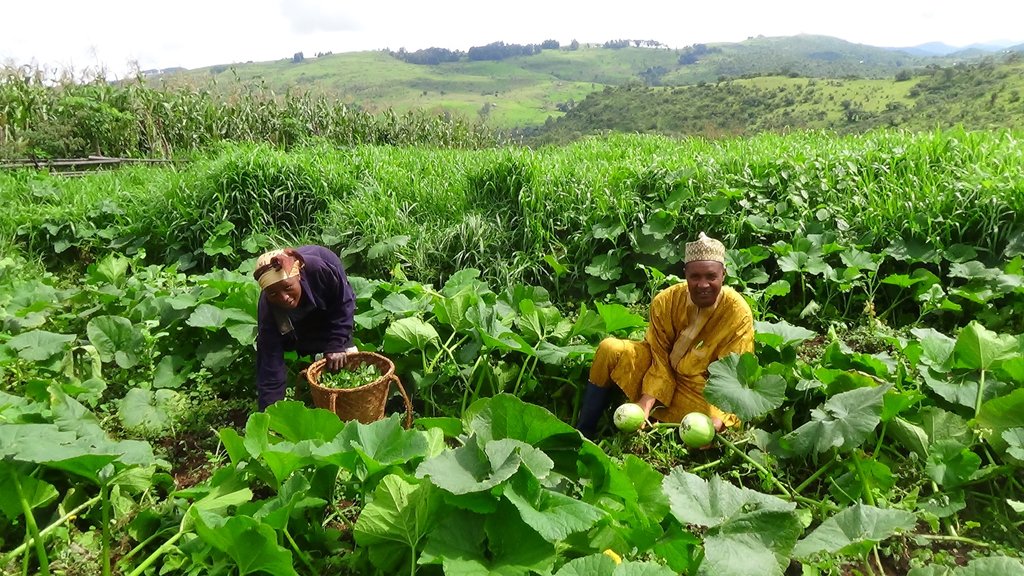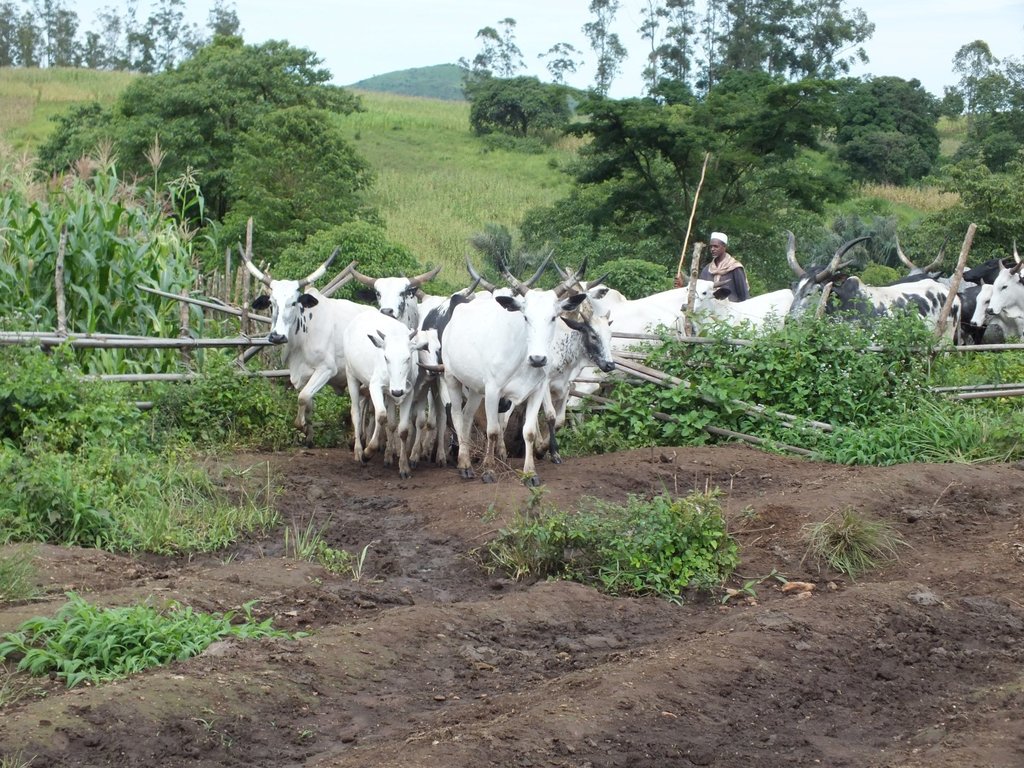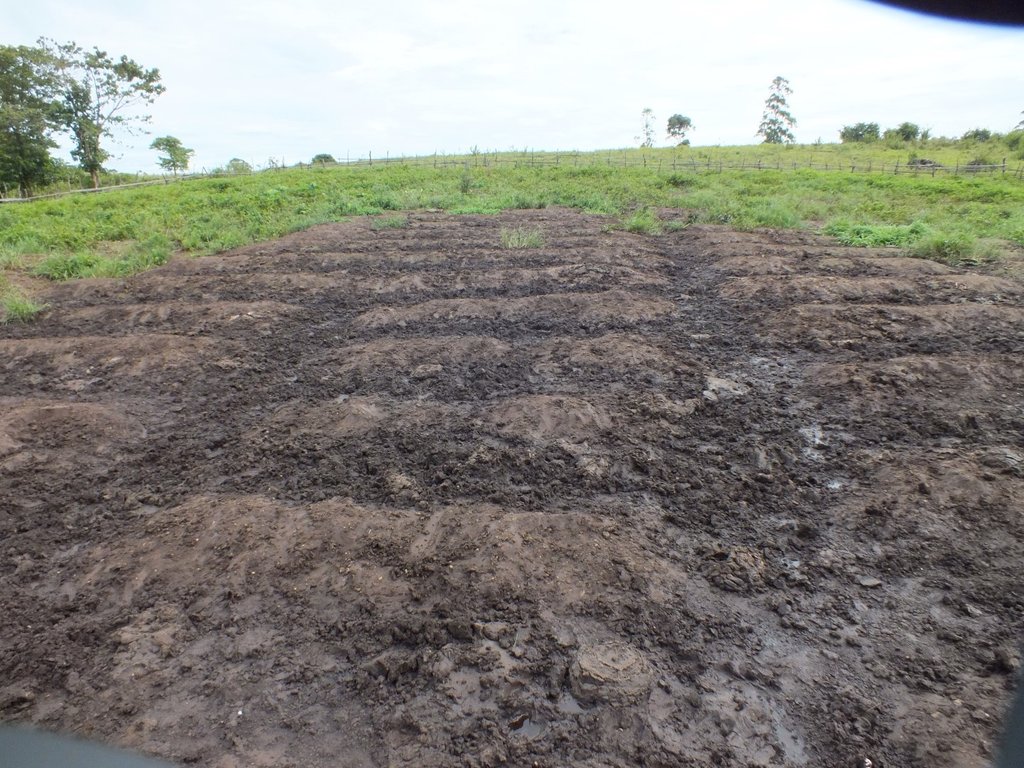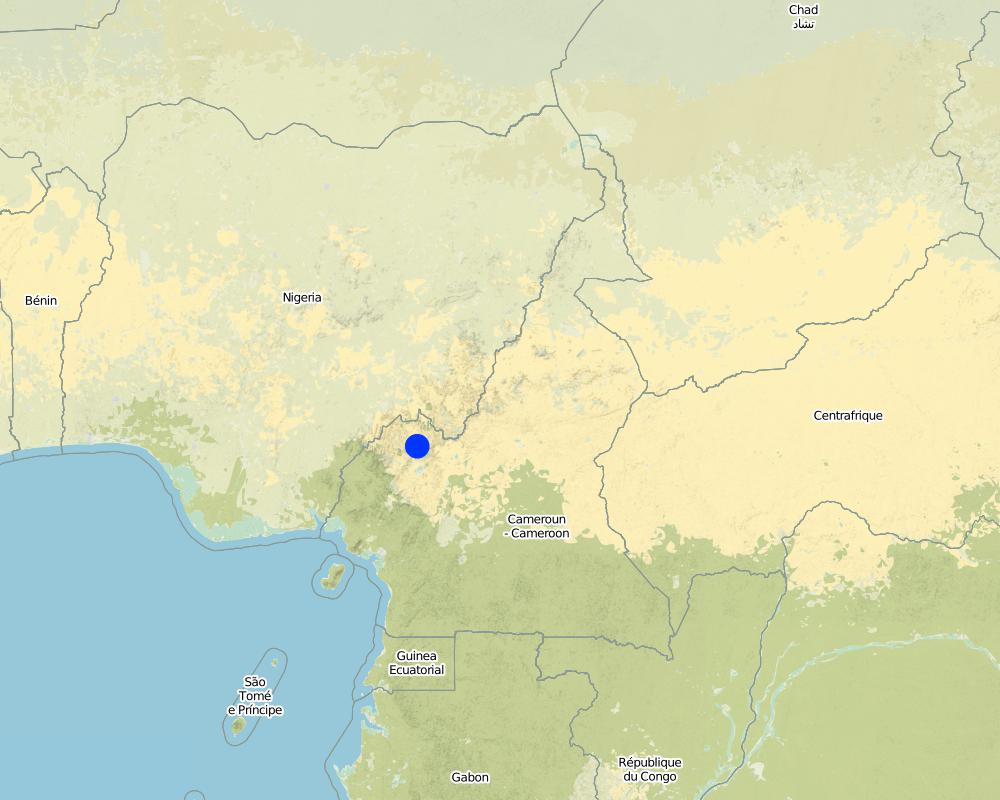Alliance Farming [แคเมอรูน]
- ผู้สร้างสรรค์:
- การอัพเดท:
- ผู้รวบรวม: Blasius Azuhnwi
- ผู้เรียบเรียง: –
- ผู้ตรวจสอบ: Donia Mühlematter, Brigitte Zimmermann, Rima Mekdaschi Studer, Alexandra Gavilano
Alliance Farming
technologies_3342 - แคเมอรูน
ดูส่วนย่อย
ขยายทั้งหมด ย่อทั้งหมด1. ข้อมูลทั่วไป
1.2 รายละเอียดที่ติดต่อได้ของผู้รวบรวมและองค์กรที่เกี่ยวข้องในการประเมินและการจัดเตรียมทำเอกสารของเทคโนโลยี
ผู้เชี่ยวชาญ SLM:
Jiedoh Duni
MBOSCUDA
แคเมอรูน
ผู้เชี่ยวชาญ SLM:
Sali Usmanu Mallam
MBOSCUDA
แคเมอรูน
ผู้เชี่ยวชาญ SLM:
Hammadu Bawuro Abubakar
MBOSCUDA
แคเมอรูน
ชื่อของโครงการซึ่งอำนวยความสะดวกในการทำเอกสารหรือการประเมินเทคโนโลยี (ถ้าเกี่ยวข้อง)
In Search of Common Groundชื่อขององค์กรซึ่งอำนวยความสะดวกในการทำเอกสารหรือการประเมินเทคโนโลยี (ถ้าเกี่ยวข้อง)
Mbororo Social and Cultural Development Association (MBOSCUDA) - แคเมอรูน1.3 เงื่อนไขการใช้ข้อมูลที่ได้บันทึกผ่านทาง WOCAT
ผู้รวบรวมและวิทยากรหลักยอมรับเงื่อนไขเกี่ยวกับการใช้ข้อมูลที่ถูกบันทึกผ่านทาง WOCAT:
ใช่
1.4 การเปิดเผยเรื่องความยั่งยืนของเทคโนโลยีที่ได้อธิบายไว้
เทคโนโลยีที่ได้อธิบายไว้นี้เป็นปัญหาของความเสื่อมโทรมโทรมของที่ดินหรือไม่ จึงไม่ได้รับการยอมรับว่าเป็นเทคโนโลยีเพื่อการจัดการที่ดินอย่างยั่งยืน:
ไม่ใช่
1.5 Reference to Questionnaire(s) on SLM Approaches (documented using WOCAT)
2. การอธิบายลักษณะของเทคโนโลยี SLM
2.1 การอธิบายแบบสั้น ๆ ของเทคโนโลยี
คำจำกัดความของเทคโนโลยี:
Alliance farming refers to collaboration between crop farmers and pastoralists, who agree to use the same land and related resources (crop residues as fodder for pastoralists; dung as fertilizer for crop farmers) for their mutual benefit.
2.2 การอธิบายแบบละเอียดของเทคโนโลยี
คำอธิบาย:
Alliance farming is partnership between pastoralists and subsistence farmers to share resources. They agree to use the same land and related resources sequentially: growing crops during the rains, and grazing cattle in the dry season. It is a further development of the conflict mediation process under which cattle are allowed to graze on cropland after harvest. The cattle consume crop residues and weeds (including some grass) on the farm and they produce dung and urine in turn, which increases nitrogen content and organic matter in the soil. This enhances its fertility and makes it more productive for the next round of crop cultivation. The crops grown are mainly annuals including maize, beans, soybeans and groundnuts. The livestock are mainly zebu cattle for beef (Bos indicus). There exists several variants (or components) of this arrangement: 1) The farmer constructs a night paddock (a corral) in farmland and invites pastoralists to kraal their animals in the paddock overnight; 2) The farmer arranges with the pastoralist to farm on areas where animals have been held overnight, in grazing land – and constructs a fence to protect the crops; 3) In communities where transhumance is common, the farmer allows a pastoralist to graze his cattle on crop residues remaining after harvest; 4) Pastoralists allow farmers to collect dung and apply it in their farms. Contracts for the most part are verbal and non-written, and each party counts on the good conscience and honesty of the other.
2.3 รูปภาพของเทคโนโลยี
คำอธิบายภาพ:
4 different photos showing pastoralists and farmers who are benefiting from this technology have been provided.
2.4 วีดีโอของเทคโนโลยี
ความคิดเห็น/อธิบายสั้นๆ:
There are two videos of this technology available but each is about 125 MB and just too heavy to be uploaded on to this site.
สถานที่:
n.a
ชื่อผู้ถ่ายวีดีโอ:
n.a
2.5 ประเทศภูมิภาค หรือสถานที่ตั้งที่เทคโนโลยีได้นำไปใช้และได้รับการครอบคลุมโดยการประเมินนี้
ประเทศ:
แคเมอรูน
ภูมิภาค/รัฐ/จังหวัด:
North West Region
ข้อมูลจำเพาะเพิ่มเติมของสถานที่ตั้ง :
This approach has been piloted in 23 communities in the North West Region.
ระบุการกระจายตัวของเทคโนโลยี:
- ใช้ ณ จุดที่เฉพาะเจาะจงหรือเน้นไปยังบริเวณพื้นที่ขนาดเล็ก
แสดงความคิดเห็น:
Presently common in pilot villages/communities.
Map
×2.6 วันที่การดำเนินการ
ระบุปีที่ใช้:
2011
ถ้าไม่รู้ปีที่แน่นอน ให้ระบุวันที่โดยประมาณ:
- น้อยกว่า 10 ปี (ไม่นานนี้)
2.7 คำแนะนำของเทคโนโลยี
ให้ระบุว่าเทคโนโลยีถูกแนะนำเข้ามาอย่างไร:
- เป็นส่วนหนึ่งของระบบแบบดั้งเดิมที่ทำก้นอยู่ (> 50 ปี)
- ทางโครงการหรือจากภายนอก
ความคิดเห็น (ประเภทของโครงการ เป็นต้น) :
Some aspects of this technology were already in practise in the region over the decades but due the facilitation of Mbororo Social and Cultural Development Association (MBOSCUDA) this technology is being adopted now by many locals
3. การจัดประเภทของเทคโนโลยี SLM
3.1 วัตถุประสงค์หลักของเทคโนโลยี
- ปรับปรุงการผลิตให้ดีขึ้น
- ลด ป้องกัน ฟื้นฟู การเสื่อมโทรมของที่ดิน
- อนุรักษ์ระบบนิเวศน์
- ป้องกันพื้นที่ลุ่มน้ำ/บริเวณท้ายน้ำ โดยร่วมกับเทคโนโลยีอื่นๆ
- สร้างผลกระทบทางด้านสังคมที่เป็นประโยชน์
3.2 ประเภทของการใช้ที่ดินในปัจจุบันที่ได้นำเทคโนโลยีไปใช้
Land use mixed within the same land unit:
ใช่
Specify mixed land use (crops/ grazing/ trees):
- Agro-pastoralism (incl. integrated crop-livestock)

พื้นที่ปลูกพืช
- การปลูกพืชล้มลุกอายุปีเดียว
Annual cropping - Specify crops:
- cereals - maize
- legumes and pulses - beans
- legumes and pulses - soya
- oilseed crops - groundnuts
จำนวนของฤดูเพาะปลูกต่อปี:
- 1
ระบุ:
Usually one growing season.
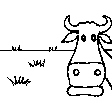
ทุ่งหญ้าเลี้ยงสัตว์
Extensive grazing:
- การเลี้ยงสัตว์แบบเร่ร่อนไปตามที่ต่าง ๆ (Nomadism)
- กึ่งโนแมนดิซึ่มหรือแพสโตแรลลิซึ่ม (Semi-nomadism/pastoralism)
- zebu cattle
แสดงความคิดเห็น:
Main animal species and products: Zebu cattle under extensive production which produce dung and urine.
Main products/ services: Annuals such as maize, beans, soybeans and groundnuts, while livestock kept under extensive system of production produce dung and urine to enrich the soil.
3.3 Has land use changed due to the implementation of the Technology?
Has land use changed due to the implementation of the Technology?
- Yes (Please fill out the questions below with regard to the land use before implementation of the Technology)
แสดงความคิดเห็น:
Land use is changing due to the use of this technology but this change is principally driven by the increasing demographics. Through the use of this technology, much more rangelands is being cultivated for crop production
3.4 การใช้น้ำ
การใช้น้ำของที่ดินที่มีการใช้เทคโนโลยีอยู่:
- จากน้ำฝน
แสดงความคิดเห็น:
This is a very low-input land use.
3.5 กลุ่ม SLM ที่ตรงกับเทคโนโลยีนี้
- การจัดการปศุสัตว์และทุ่งหญ้าเลี้ยงสัตว์
- การจัดการปลูกพืชร่วมกับปศุสัตว์
- การจัดการความอุดมสมบรูณ์ของดินแบบผสมผสาน
3.6 มาตรการ SLM ที่ประกอบกันเป็นเทคโนโลยี
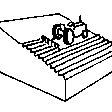
มาตรการจัดการพืช
- A1: พืช/สิ่งปกคลุมดิน
- A2: อินทรียวัตถุในดิน/ความอุดมสมบูรณ์ในดิน
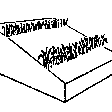
มาตรการอนุรักษ์ด้วยวิธีพืช
- V2: หญ้าและไม้ยืนต้น
- V4: การแทนที่หรือการนำพันธุ์ต่างถิ่น/ที่รุกล้ำเข้ามา ออกไปจากพื้นที่
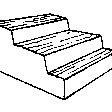
มาตรการอนุรักษ์ด้วยโครงสร้าง
- S6: กำแพง สิ่งกีดขวาง รั้วไม้ รั้วต่างๆ
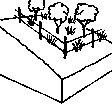
มาตรการอนุรักษ์ด้วยการจัดการ
- M1: การเปลี่ยนรูปแบบของการใช้ประโยชน์ที่ดิน
- M4: การเปลี่ยนแปลงช่วงเวลาให้เหมาะแก่การทำกิจกรรม
3.7 รูปแบบหลักของการเสื่อมโทรมของที่ดินที่ได้รับการแก้ไขโดยเทคโนโลยี
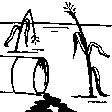
การเสื่อมโทรมของดินทางด้านเคมี
- Cn (Fertility decline): ความอุดมสมบูรณ์และปริมาณอินทรียวัตถุในดินถูกทำให้ลดลงไป (ไม่ได้เกิดจากสาเหตุการกัดกร่อน)
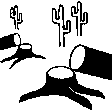
การเสื่อมโทรมของดินทางด้านชีวภาพ
- Bc (Reduction of vegetation cover): การลดลงของจำนวนพืชที่ปกคลุมดิน
3.8 การป้องกัน การลดลง หรือการฟื้นฟูความเสื่อมโทรมของที่ดิน
ระบุเป้าหมายของเทคโนโลยีกับความเสื่อมโทรมของที่ดิน:
- ลดความเสื่อมโทรมของดิน
- ฟื้นฟูบำบัดที่ดินที่เสื่อมโทรมลงอย่างมาก
แสดงความคิดเห็น:
Some degraded land is being rehabilitated as pastoralists do invite farmers to come farm in the rangelands which have been invaded by braken fern. By tilling of the soil and removing the rhizomes in them, the spread of the invasive species is being put to check.
4. ข้อมูลจำเพาะด้านเทคนิค กิจกรรมการนำไปปฏิบัติใช้ ปัจจัยนำเข้า และค่าใช้จ่าย
4.1 แบบแปลนทางเทคนิคของเทคโนโลยี
ข้อมูลจำเพาะด้านเทคนิค (แบบแปลนทางเทคนิคของเทคโนโลยี):
• Alliance farming is an advanced outcome of the conflict mediation process whereby cattle are allowed to graze on crop lands after harvest.
• Livestock consume crop residues and weeds (including grass).
• When the land is used to paddock cattle, their manure and urine fertilize the soil making it more productive when the crop farmers return to cultivate.
• Crops are planted on the plot of land once the cattle are taken away.
ผู้เขียน:
MBOSCUDA North West Region Cameroon
วันที่:
13/01/2018
4.2 ข้อมูลทั่วไปเกี่ยวกับการคำนวณปัจจัยนำเข้าและค่าใช้จ่าย
ให้ระบุว่าค่าใช้จ่ายและปัจจัยนำเข้าได้รับการคำนวณอย่างไร:
- ต่อพื้นที่ที่ใช้เทคโนโลยี
ระบุขนาดและหน่วยพื้นที่:
0.5 hectares
อื่นๆ หรือสกุลเงินประจำชาติ (ระบุ):
FCFA
ระบุค่าเฉลี่ยของค่าจ้างในการจ้างแรงงานต่อวัน:
1500 FCFA
4.3 กิจกรรมเพื่อการจัดตั้ง
| กิจกรรม | Timing (season) | |
|---|---|---|
| 1. | Farmer harvests annual crop e.g. maize, beans | At the end of growing season which is usually in October |
| 2. | Farmer invites pastoralist to bring herd to graze off crop residues | After harvest of crops in Octorber |
| 3. | Cattle graze on crop residues and weeds on farm | During grazing in the dry season from mid-November onwards |
| 4. | Dung and faeces passed out by animal increases N content of soil | During grazing, mostly in the dry season mid-November to mid-March. |
| 5. | Pastoralist takes animals away from farm | At the beginning of the rains in mid-March. |
| 6. | Farmer then returns to till soil and plant annual crops in the field | At the beginning of the growing season by mid-March. |
แสดงความคิดเห็น:
This is actually a low input technology.
4.4 ค่าใช้จ่ายของปัจจัยนำเข้าที่จำเป็นสำหรับการจัดตั้ง
ถ้าผู้ใช้ที่ดินรับภาระน้อยกว่า 100% ของค่าใช้จ่าย ให้ระบุว่าใครเป็นผู้รับผิดชอบส่วนที่เหลือ:
Land users bore all of the costs
แสดงความคิดเห็น:
A low input technology.
4.5 การบำรุงรักษาสภาพหรือกิจกรรมที่เกิดขึ้นเป็นประจำ
| กิจกรรม | ช่วงระยะเวลา/ความถี่ | |
|---|---|---|
| 1. | n.a. |
แสดงความคิดเห็น:
There are no maintenance costs.
4.6 ค่าใช้จ่ายของปัจจัยนำเข้าและกิจกรรมที่เกิดขึ้นเป็นประจำที่ต้องการการบำรุงรักษา (ต่อปี)
ถ้าผู้ใช้ที่ดินรับภาระน้อยกว่า 100% ของค่าใช้จ่าย ให้ระบุว่าใครเป็นผู้รับผิดชอบส่วนที่เหลือ:
n.a.
4.7 ปัจจัยสำคัญที่สุดที่มีผลกระทบต่อค่าใช้จ่าย
ปัจจัยสำคัญที่สุดที่มีผลกระทบต่อค่าใช้จ่ายต่างๆ:
The only costs pertain to herding the animal to farmer's farm which is done by pastoralist or his a herder he has paid
5. สิ่งแวดล้อมทางธรรมชาติและของมนุษย์
5.1 ภูมิอากาศ
ฝนประจำปี
- < 250 ม.ม.
- 251-500 ม.ม.
- 501-750 ม.ม.
- 751-1,000 ม.ม.
- 1,001-1,500 ม.ม.
- 1,501-2,000 ม.ม.
- 2,001-3,000 ม.ม.
- 3,001-4,000 ม.ม.
- > 4,000 ม.ม.
ข้อมูลจำเพาะ/ความคิดเห็นเรื่องปริมาณน้ำฝน:
It is a uni-modal in nature with rains coming in by mid March and going by mid October.
ระบุชื่อของสถานีตรวดวัดอากาศที่ใช้อ้างอิงคือ:
Institute of Agricultural Research for Development
เขตภูมิอากาศเกษตร
- กึ่งชุ่มชื้น
Sub-humid climate with mainly sudan savana characterized by undulating hills and short grass species interspersed with shrubs.
5.2 สภาพภูมิประเทศ
ค่าเฉลี่ยความลาดชัน:
- ราบเรียบ (0-2%)
- ลาดที่ไม่ชัน (3-5%)
- ปานกลาง (6-10%)
- เป็นลูกคลื่น (11-15%)
- เป็นเนิน (16-30%)
- ชัน (31-60%)
- ชันมาก (>60%)
ธรณีสัณฐาน:
- ที่ราบสูง/ที่ราบ
- สันเขา
- ไหล่เขา
- ไหล่เนินเขา
- ตีนเนิน
- หุบเขา
ระดับความสูง:
- 0-100 เมตร
- 101-500 เมตร
- 501-1,000 เมตร
- 1,001-1,500 เมตร
- 1,501-2,000 เมตร
- 2,001-2,500 เมตร
- 2,501-3,000 เมตร
- 3,001-4,000 เมตร
- > 4,000 เมตร
ให้ระบุถ้าเทคโนโลยีได้ถูกนำไปใช้:
- ไม่เกี่ยวข้อง
5.3 ดิน
ค่าเฉลี่ยความลึกของดิน:
- ตื้นมาก (0-20 ซ.ม.)
- ตื้น (21-50 ซ.ม.)
- ลึกปานกลาง (51-80 ซ.ม.)
- ลึก (81-120 ซ.ม.)
- ลึกมาก (>120 ซ.ม.)
เนื้อดิน (ดินชั้นบน):
- หยาบ/เบา (ดินทราย)
เนื้อดินล่าง (> 20 ซ.ม.ต่ำจากผิวดิน):
- ปานกลาง (ดินร่วน ทรายแป้ง)
อินทรียวัตถุในดิน:
- ปานกลาง (1-3%)
5.4 ความเป็นประโยชน์และคุณภาพของน้ำ
ระดับน้ำใต้ดิน:
5-50 เมตร
น้ำไหลบ่าที่ผิวดิน:
ปานกลาง
คุณภาพน้ำ (ที่ยังไม่ได้บำบัด):
เป็นน้ำเพื่อการดื่มที่ดี
ความเค็มของน้ำเป็นปัญหาหรือไม่:
ไม่ใช่
กำลังเกิดน้ำท่วมในพื้นที่หรือไม่:
ไม่ใช่
5.5 ความหลากหลายทางชีวภาพ
ความหลากหลายทางชนิดพันธุ์:
- ปานกลาง
ความหลากหลายของแหล่งที่อยู่:
- ปานกลาง
5.6 ลักษณะของผู้ใช้ที่ดินที่นำเทคโนโลยีไปปฏิบัติใช้
อยู่กับที่หรือเร่ร่อน:
- อยู่กับที่
- กึ่งเร่ร่อน
แนวทางการตลาดของระบบการผลิต:
- เพื่อการยังชีพ (หาเลี้ยงตนเอง)
- mixed (subsistence/ commercial)
รายได้ที่มาจากนอกฟาร์ม:
- < 10% ของรายได้ทั้งหมด
- 10-50% ของรายได้ทั้งหมด
ระดับของความมั่งคั่งโดยเปรียบเทียบ:
- จน
- พอมีพอกิน
เป็นรายบุคคล/ครัวเรือน:
- เป็นรายบุคคล/ครัวเรือน
- กลุ่ม/ชุมชน
ระดับของการใช้เครื่องจักรกล:
- งานที่ใช้แรงกาย
เพศ:
- หญิง
- ชาย
อายุของผู้ใช้ที่ดิน:
- ผู้เยาว์
- วัยกลางคน
ระบุลักษณะอื่นๆที่เกี่ยวข้องของผู้ใช้ที่ดิน:
The land users are predominantly resource poor livestock and crop farmers.
5.7 Average area of land used by land users applying the Technology
- < 0.5 เฮกตาร์
- 0.5-1 เฮกตาร์
- 1-2 เฮกตาร์
- 2-5 เฮกตาร์
- 5-15 เฮกตาร์
- 15-50 เฮกตาร์
- 50-100 เฮกตาร์
- 100-500 เฮกตาร์
- 500-1,000 เฮกตาร์
- 1,000-10,000 เฮกตาร์
- >10,000 เฮกตาร์
พิจารณาว่าเป็นขนาดเล็ก กลาง หรือขนาดใหญ่ (ซึ่งอ้างอิงถึงบริบทระดับท้องถิ่น):
- ขนาดกลาง
5.8 กรรมสิทธิ์ในที่ดิน สิทธิในการใช้ที่ดินและสิทธิในการใช้น้ำ
กรรมสิทธิ์ในที่ดิน:
- เป็นแบบชุมชนหรือหมู่บ้าน
- รายบุคคล ไม่ได้รับสิทธิครอบครอง
สิทธิในการใช้ที่ดิน:
- เข้าถึงได้แบบเปิด (ไม่ได้จัดระเบียบ)
- เช่า
สิทธิในการใช้น้ำ:
- เข้าถึงได้แบบเปิด (ไม่ได้จัดระเบียบ)
- เกี่ยวกับชุมชน (ถูกจัดระเบียบ)
5.9 การเข้าถึงบริการและโครงสร้างพื้นฐาน
สุขภาพ:
- จน
- ปานกลาง
- ดี
การศึกษา:
- จน
- ปานกลาง
- ดี
ความช่วยเหลือทางด้านเทคนิค:
- จน
- ปานกลาง
- ดี
การจ้างงาน (เช่น ภายนอกฟาร์ม):
- จน
- ปานกลาง
- ดี
ตลาด:
- จน
- ปานกลาง
- ดี
พลังงาน:
- จน
- ปานกลาง
- ดี
ถนนและการขนส่ง:
- จน
- ปานกลาง
- ดี
น้ำดื่มและการสุขาภิบาล:
- จน
- ปานกลาง
- ดี
บริการด้านการเงิน:
- จน
- ปานกลาง
- ดี
6. ผลกระทบและสรุปคำบอกกล่าว
6.1 ผลกระทบในพื้นที่ดำเนินการ (On-site) จากการใช้เทคโนโลยี
ผลกระทบทางด้านเศรษฐกิจและสังคม
การผลิต
การผลิตพืชผล
จำนวนก่อน SLM:
0
หลังจาก SLM:
2
แสดงความคิดเห็น/ระบุ:
Improved soil fertility from dung and urine leads to increase crop production.
คุณภาพพืชผล
จำนวนก่อน SLM:
0
หลังจาก SLM:
1
แสดงความคิดเห็น/ระบุ:
Improved crop quality as little or no pesticides are used.
การผลิตพืชที่ใช้เลี้ยงปศุสัตว์
จำนวนก่อน SLM:
0
หลังจาก SLM:
2
แสดงความคิดเห็น/ระบุ:
increase fodder production from crop residues such as maize stover, legume haulms and sweet potato vines.
คุณภาพพืชที่ใช้เลี้ยงปศุสัตว์
จำนวนก่อน SLM:
0
หลังจาก SLM:
2
แสดงความคิดเห็น/ระบุ:
Farmers do not use chemicals on the crops so quality of resulting crop residues is also good.
การผลิตสัตว์
จำนวนก่อน SLM:
0
หลังจาก SLM:
2
แสดงความคิดเห็น/ระบุ:
The greater access that the livestock have to crop residues has led to increased animal production.
การเสี่ยงต่อความล้มเหลวในการผลิต
จำนวนก่อน SLM:
0
หลังจาก SLM:
1
แสดงความคิดเห็น/ระบุ:
The risk of production failure has decreased since farmers have increased the effective sizes of their farm holdings.
พื้นที่สำหรับการผลิต
จำนวนก่อน SLM:
0
หลังจาก SLM:
1
แสดงความคิดเห็น/ระบุ:
Production area has also increased as farmers have increase land area under cultivation mostly when they are invited to come farm in rangelands in order to till the soil and break the cycle of spread of invasive species
การจัดการที่ดิน
จำนวนก่อน SLM:
-1
หลังจาก SLM:
2
แสดงความคิดเห็น/ระบุ:
Better land management now with the same land put to multiple uses and more productive than previously i.e. when the two land uses were separated.
รายได้และค่าใช้จ่าย
รายได้จากฟาร์ม
จำนวนก่อน SLM:
0
หลังจาก SLM:
2
แสดงความคิดเห็น/ระบุ:
Farm income has increased from improved production and productivity of crops and animals.
ความหลากหลายของแหล่งผลิตรายได้
จำนวนก่อน SLM:
0
หลังจาก SLM:
2
แสดงความคิดเห็น/ระบุ:
Income sources have been diversified. With increased income from farms, farmers most especially are going for other off- farm enterprises such as petty trading.
ความเหลื่อมล้ำทางเศรษฐกิจ
จำนวนก่อน SLM:
-1
หลังจาก SLM:
1
แสดงความคิดเห็น/ระบุ:
Economic disparities are being bridged because of the increased income from either livestock production or crop farming.
ภาระงาน
จำนวนก่อน SLM:
-1
หลังจาก SLM:
1
แสดงความคิดเห็น/ระบุ:
Workload is also being eased as farmers and pastoralists are witnessing improved crop and livestock productivity. Farmers, especially, do not have to bring much more new land under cultivation.
ผลกระทบด้านสังคมวัฒนธรรมอื่น ๆ
ความมั่นคงด้านอาหาร / พึ่งตนเองได้
จำนวนก่อน SLM:
-1
หลังจาก SLM:
2
แสดงความคิดเห็น/ระบุ:
Food self-sufficiency of alliance farming practising families has improved from the increase in production.
สถานการณ์ด้านสุขภาพ
จำนวนก่อน SLM:
0
หลังจาก SLM:
1
แสดงความคิดเห็น/ระบุ:
From the improved income as a result of increased production and productivity, alliance practitioners have more disposal income to take care of medical bills.
การใช้ที่ดิน / สิทธิในการใช้น้ำ
จำนวนก่อน SLM:
-1
หลังจาก SLM:
2
แสดงความคิดเห็น/ระบุ:
Land use rights especially of pastoralists has improved since farmers now acknowledge that pastoralists do own land. Pastoralists, due to their late arrival in the region, are looked upon as 'strangers' by their farming neighbours. However this perception is changing because of the positive engagement between the these two main land users.
โอกาสทางวัฒนธรรม
จำนวนก่อน SLM:
-1
หลังจาก SLM:
2
แสดงความคิดเห็น/ระบุ:
Increase cross-cultural dialogue within the community: pastoralists are predominantly Moslems while crop farmers are mainly Christians.
สถาบันของชุมชน
จำนวนก่อน SLM:
-1
หลังจาก SLM:
2
แสดงความคิดเห็น/ระบุ:
Community institutions like the Dialogue Platforms have been strengthened, as they have grown in recognition among community members as a low- stake solution to resource use conflicts.
สถาบันแห่งชาติ
จำนวนก่อน SLM:
0
หลังจาก SLM:
1
แสดงความคิดเห็น/ระบุ:
Agro-Pastoral Commissions, which are the statutory bodies adjudicating conflicts between farmers and pastoralists, have come to see effectiveness of the Dialogue Platforms and are incorporating the Alternative Conflict Management practices in their modus operandi.
การบรรเทาความขัดแย้ง
จำนวนก่อน SLM:
-2
หลังจาก SLM:
2
แสดงความคิดเห็น/ระบุ:
There has been a great decrease in the number, frequency and intensity of the conflicts as the two sets of land users have seen good reason to collaborate instead of antagonize each other.
สถานการณ์ของกลุ่มด้อยโอกาส ทางด้านสังคมและเศรษฐกิจ
จำนวนก่อน SLM:
-1
หลังจาก SLM:
2
แสดงความคิดเห็น/ระบุ:
The self-esteem of the Mbororos who make up the majority of pastoralists community has been improved through this positive engagement with farmers.
ผลกระทบด้านนิเวศวิทยา
ดิน
การหมุนเวียนและการเติมของธาตุอาหาร
จำนวนก่อน SLM:
0
หลังจาก SLM:
2
แสดงความคิดเห็น/ระบุ:
Nutrient cycling has improved as dung and urine are returned to improve soil fertility and help subsequent crops.
อินทรียวัตถุในดิน/ต่ำกว่าดินชั้น C
จำนวนก่อน SLM:
0
หลังจาก SLM:
2
แสดงความคิดเห็น/ระบุ:
Soil organic matter has also being improved from the increase crop residues which animals do not eat all.
ความหลากหลายทางชีวภาพของพืชและสัตว์
การปกคลุมด้วยพืช
จำนวนก่อน SLM:
0
หลังจาก SLM:
1
แสดงความคิดเห็น/ระบุ:
Increase soil fertility has meant increase crop cover
มวลชีวภาพ/เหนือดินชั้น C
จำนวนก่อน SLM:
0
หลังจาก SLM:
1
แสดงความคิดเห็น/ระบุ:
Increase crop yields also mean increase crop biomass
ความหลากหลายทางชีวภาพของพืช
จำนวนก่อน SLM:
0
หลังจาก SLM:
1
แสดงความคิดเห็น/ระบุ:
Plant diversity has been somewhat increased due to fertile soils make it possible for different plant species to grow
พืชพันธุ์ต่างถิ่นที่รุกล้ำเข้ามา
จำนวนก่อน SLM:
-1
หลังจาก SLM:
1
แสดงความคิดเห็น/ระบุ:
The spread of alien species such as bracken fern on rangelands is being controlled since farmers are being invited by pastoralists to come and cultivate crops on rangelands. The tilling of the soil is a good mechanical method of controlling the spread of these invasive species.
6.2 ผลกระทบนอกพื้นที่ดำเนินการ (Off-site) จากการใช้เทคโนโลยี
Specify assessment of off-site impacts (measurements):
n.a.
6.3 การเผชิญและความตอบสนองของเทคโนโลยีต่อการเปลี่ยนแปลงสภาพภูมิอากาศที่ค่อยเป็นค่อยไป และสภาพรุนแรงของภูมิอากาศ / ภัยพิบัติ (ที่รับรู้ได้โดยผู้ใช้ที่ดิน)
การเปลี่ยนแปลงสภาพภูมิอากาศที่ค่อยเป็นค่อยไป
การเปลี่ยนแปลงสภาพภูมิอากาศที่ค่อยเป็นค่อยไป
| ฤดู | increase or decrease | เทคโนโลยีมีวิธีการรับมืออย่างไร | |
|---|---|---|---|
| ฝนประจำปี | ลดลง | ไม่ค่อยดี | |
| ฝนตามฤดู | ฤดูฝน | ลดลง | ไม่ค่อยดี |
สภาพรุนแรงของภูมิอากาศ (ภัยพิบัติ)
ภัยพิบัติทางอุตุนิยมวิทยา
| เทคโนโลยีมีวิธีการรับมืออย่างไร | |
|---|---|
| พายุฝนประจำท้องถิ่น | ไม่ค่อยดี |
| พายุลูกเห็บประจำท้องถิ่น | ไม่ค่อยดี |
ภัยพิบัติจากสภาพภูมิอากาศ
| เทคโนโลยีมีวิธีการรับมืออย่างไร | |
|---|---|
| คลื่นความร้อน | ไม่ค่อยดี |
| ภัยจากฝนแล้ง | ไม่ค่อยดี |
| ไฟบนบก | ไม่ค่อยดี |
ภัยพิบัติจากน้ำ
| เทคโนโลยีมีวิธีการรับมืออย่างไร | |
|---|---|
| น้ำท่วมตามปกติ (แม่น้ำ) | ไม่ค่อยดี |
ภัยพิบัติทางชีวภาพ
| เทคโนโลยีมีวิธีการรับมืออย่างไร | |
|---|---|
| การบุกรุกของแมลง / หนอน | ไม่ค่อยดี |
แสดงความคิดเห็น:
Growth of the crops most especially will be affected by climate change events such as droughts or too much rainfall. The crops are C4 crops and so will get very little benefits predicted rise in temperatures associated with climate change.
6.4 การวิเคราะห์ค่าใช้จ่ายและผลประโยชน์ที่ได้รับ
ผลประโยชน์ที่ได้รับเปรียบเทียบกับค่าใช้จ่ายในการจัดตั้งเป็นอย่างไร (จากมุมมองของผู้ใช้ที่ดิน)
ผลตอบแทนระยะสั้น:
ด้านบวก
ผลตอบแทนระยะยาว:
ด้านบวก
ผลประโยชน์ที่ได้รับเปรียบเทียบกับค่าใช้จ่ายในการบำรุงรักษาหรือต้นทุนที่เกิดขึ้นซ้ำอีก เป็นอย่างไร (จากมุมมองของผู้ใช้ที่ดิน)
ผลตอบแทนระยะสั้น:
ด้านบวก
ผลตอบแทนระยะยาว:
ด้านบวก
6.5 การปรับตัวของเทคโนโลยี
- ครั้งเดียวหรือเป็นการทดลอง
ถ้ามีข้อมูลให้บอกปริมาณด้วย (จำนวนของครัวเรือนหรือครอบคลุมพื้นที่):
More than 800 alliance farming pairs have been facilitated by this process.
Of all those who have adopted the Technology, how many did so spontaneously, i.e. without receiving any material incentives/ payments?
- 0-10%
แสดงความคิดเห็น:
Farmers have not received any incentives from project in order to adopt this.
6.6 การปรับตัว
เทคโนโลยีได้รับการปรับเปลี่ยนเมื่อเร็วๆนี้ เพื่อให้ปรับตัวเข้ากับสภาพที่กำลังเปลี่ยนแปลงหรือไม่:
ไม่ใช่
6.7 จุดแข็ง / ข้อได้เปรียบ / โอกาสของเทคโนโลยี
| จุดแข็ง / ข้อได้เปรียบ / โอกาสในทัศนคติของผู้ใช้ที่ดิน |
|---|
| Technology leads to increased crop yields because of the improved soil fertility. |
| Technology leads to improved crop quality because of the use of organic manure and less chemicals fertilizers. The use of chemical fertilizers can lead to leaching of inorganic nutrients into ground water, and also eutrophication of water bodies. |
| It has led to stronger social relationships between farmers and pastoralists. |
| Invasive species such as Pteridium aquilinium (bracken fern) that has invaded rangelands is being controlled. Tilling of the farms is a mechanical method of stopping its growth and spread. |
| จุดแข็ง / ข้อได้เปรียบ / โอกาสในทัศนคติของผู้รวบรวมหรือวิทยากรหลัก |
|---|
| More productive use of land than when two land uses were separate. |
| More environmentally friendly since organic manure is being used. |
6.8 จุดอ่อน / ข้อเสียเปรียบ / ความเสี่ยงของเทคโนโลยีและวิธีการแก้ไข
| จุดอ่อน / ข้อเสียเปรียบ / ความเสี่ยงในทัศนคติของผู้ใช้ที่ดิน | มีวิธีการแก้ไขได้อย่างไร |
|---|---|
| The ratio of pastoralists to farmers is really low (about 1:6) meaning that there are not many pastoralists to form Alliance Farming pairs with willing farmers. | Increasing herd sizes to ensure more production of manure could alleviate this problem. |
| จุดอ่อน / ข้อเสียเปรียบ / ความเสี่ยงในทัศนคติของผู้รวบรวมหรือวิทยากรหลัก | มีวิธีการแก้ไขได้อย่างไร |
|---|---|
| Agreements are verbal. | Formalizing the contracts. |
| Some variants of the technology, for example that in which pastoralists allow farmers to collect dung to go to farm in another area may lead to nutrient export. The dung does not contribute to improve the fertility of the soil where it was collected but does so at a different site where farming will take place. There is no net loss of nutrients out of the whole system though. | Transportation of dung to different sites should be discouraged. Farming should take place as much as possible on the farm that supplied crop residues to feed the animals. |
7. การอ้างอิงและการเชื่อมต่อ
7.1 วิธีการและแหล่งข้อมูล
- ไปเยี่ยมชมภาคสนาม การสำรวจพื้นที่ภาคสนาม
4 field visits were done.
- การสัมภาษณ์กับผู้ใช้ที่ดิน
About 30 people were contacted during focus group discussions and key informant interviews.
- การสัมภาษณ์ผู้เชี่ยวชาญด้าน SLM หรือผู้ชำนาญ
4 SLM specialists were contacted.
- การเก็บรวบรวมมาจากรายงานและเอกสารที่มีอยู่
Secondary data sources were consulted.
วันที่เก็บรวบรวมข้อมูล(ภาคสนาม) :
03/12/2018
7.2 การอ้างอิงถึงสิ่งตีพิมพ์
หัวข้อ, ผู้เขียน, ปี, หมายเลข ISBN:
MBOSCUDA Searchlight Magazine Vols 1, 2,3. 2014, 2015, 2016
ชื่อเรื่อง ผู้เขียน ปี ISBN:
Free copies
หัวข้อ, ผู้เขียน, ปี, หมายเลข ISBN:
Blasius Azuhnwi and Fiona Flintan (2017)- Making Rangelands Secure, Issue Paper 8, Rangelands Series
ชื่อเรื่อง ผู้เขียน ปี ISBN:
From ILC Rome for free
7.3 Links to relevant online information
ชื่อเรื่องหรือคำอธิบาย:
n.a.
ลิงก์และโมดูล
ขยายทั้งหมด ย่อทั้งหมดลิงก์
ไม่มีลิงก์
โมดูล
ไม่มีโมดูล


